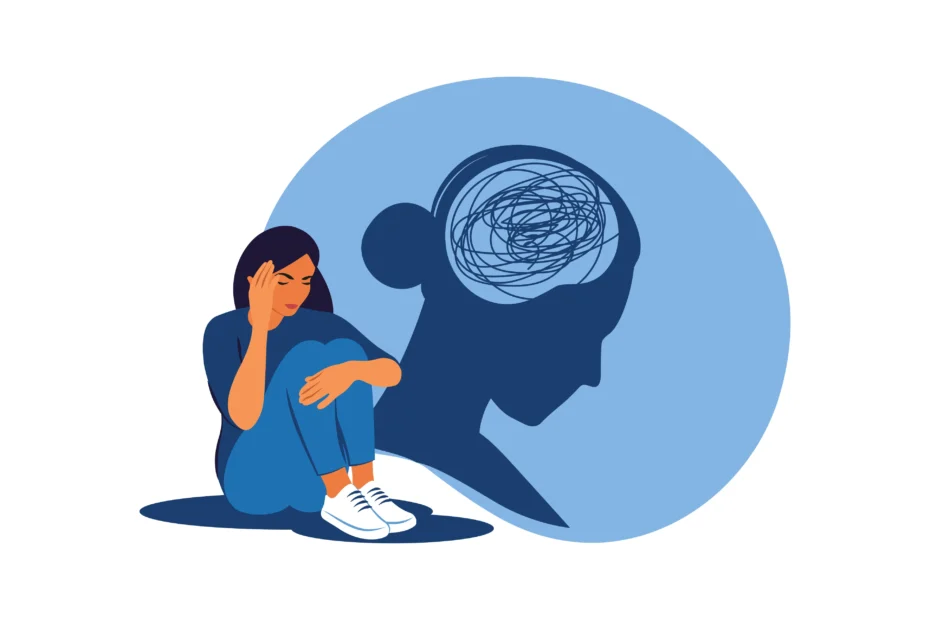How often do you find yourself checking things like locks or appliances repeatedly?
Advertisement
Do you feel the need to organize items in a specific, symmetrical way?
Advertisement
How do you react if something is out of place or disorganized?
Advertisement
How often do you experience intrusive, unwanted thoughts that you can’t seem to shake?
Advertisement
Do you find yourself performing rituals (e.g., handwashing, counting) to reduce anxiety?
Advertisement
If you avoid performing a certain ritual, how does it affect your anxiety levels?
Advertisement
How important is it for you that things are done in a specific order or way?
Advertisement
Do you often feel the need to confess or seek reassurance about things that seem minor to others?
Advertisement
How often do you avoid situations or objects because you fear contamination?
Advertisement
When a task isn’t done exactly right, do you feel the need to redo it until it feels “just right”?
Advertisement
How much time do you spend each day on repetitive behaviors or mental rituals?
Advertisement
Do you have specific “rules” that you follow strictly to prevent bad things from happening?
Advertisement
When you resist the urge to perform a compulsive behavior, how do you feel?
Advertisement
How often do you double-check tasks like locking doors or turning off the stove?
Advertisement
Do you experience distress if you cannot complete a ritual or compulsion?
Advertisement
How often do you find yourself repeating actions (e.g., tapping, counting) a specific number of times?
Advertisement
How would you describe your reaction to intrusive thoughts?
Advertisement
Do you find yourself hoarding items because you worry something bad might happen if you throw them away?
Advertisement
Do you avoid certain numbers, colors, or patterns because they feel “wrong” or unlucky?
Advertisement
How often do you seek reassurance from others about your fears or worries?
Advertisement
Do you feel compelled to repeat actions until they feel “just right,” even if there’s no logical reason?
Advertisement
How much do your rituals or compulsions interfere with your daily life?
Advertisement
Do you struggle with making decisions because of fear of making the wrong choice?
Advertisement
When you leave home, do you feel the need to go back to check if you’ve forgotten something?
Advertisement
How often do you engage in mental rituals to reduce your anxiety (e.g., praying, counting in your head)?
Advertisement
Do you feel the need to mentally or physically check things to prevent harm to yourself or others?
Advertisement
How do you feel if you’re interrupted while performing a ritual or compulsion?
Advertisement
Do you ever experience fear that you’ll act on an unwanted, intrusive thought?
Advertisement
How often do you rearrange or adjust items until they feel “just right”?
Advertisement
How do you feel when someone touches or moves something you’ve arranged?
Advertisement
OCD Test
Unlikely to Have OCD
Based on your responses, it appears that you experience few to no symptoms associated with Obsessive-Compulsive Disorder (OCD). While you may occasionally have minor preferences or habits, they do not significantly impact your daily life or cause distress. It’s normal for everyone to have quirks or routines, but your answers suggest that these behaviors don’t interfere with your well-being. If you have any lingering concerns, it’s always a good idea to speak with a mental health professional for peace of mind.
Mild Symptoms of OCD
Your results indicate that you may experience mild symptoms of OCD. You might find yourself occasionally engaging in repetitive behaviors or having intrusive thoughts, but these do not heavily interfere with your daily functioning. While these tendencies can be annoying or uncomfortable at times, they are not dominating your life. However, if you notice an increase in distress or compulsive behavior, it might be beneficial to explore professional guidance to prevent the symptoms from worsening.
Moderate Symptoms of OCD
Your answers suggest that you may experience moderate symptoms of OCD. You likely deal with recurring intrusive thoughts and perform certain rituals or behaviors to relieve anxiety. These habits may interfere with some aspects of your life, causing distress or frustration. While you might be managing the symptoms to some extent, it’s important to consider seeking advice from a mental health professional to gain tools and strategies that can help you cope more effectively.
Strong Symptoms of OCD
Based on your responses, it seems that you exhibit strong symptoms of OCD. Your life may be significantly affected by repetitive behaviors, intrusive thoughts, and a need to perform rituals to ease anxiety. These symptoms are likely causing you considerable distress and interfering with daily activities. It's essential to reach out to a healthcare provider or therapist for a thorough assessment and to discuss potential treatment options that can improve your quality of life. Professional support can help you regain control and manage your symptoms more effectively.
